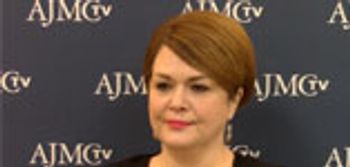
Adult obesity increased to 28% of the US population in 2015 and the diabetes rate also climbed to 11.4%. Adults who are obese are 4.7 times more likely to be diabetic compared with adults with a normal weight

Adult obesity increased to 28% of the US population in 2015 and the diabetes rate also climbed to 11.4%. Adults who are obese are 4.7 times more likely to be diabetic compared with adults with a normal weight

For independent primary practices considering transitioning into a medical home, substantial costs to make the transition may outweigh the benefits, according to a recent RAND study.

Two studies presented at the ongoing 2016 Multidisciplinary Head and Neck Cancer Symposium report on financial hurdles faced by patients diagnosed with head and neck cancer that result in lifestyle modifications, advanced disease, and worse outcomes.

Population health, healthcare value, innovations in healthcare, cost of care-these were just some of the topics discussed at the meeting.

What we're reading, February 19, 2016: long-term hospice care is weighing on Medicare; both the pope and the World Health Organization suggest women in Zika infected countries have access to contraception; and Texas health official steps down after co-authoring study on Planned Parenthood.

While primary care physicians are incorporating more nurse practitioners and physicians' assistants into patient care teams, there is a lack of incorporation of other healthcare professionals, such as behavioral specialists, psychiatrists, and pharmacists.

Robert Nesse, MD, the senior director of Policy and Payment Reform at Mayo Clinic, discussed the impact of healthcare consolidation for consumers, whether or not they are aware of it, and how the government will respond to this consolidation.

Employers can encounter complications with benefit design approaches when it comes to those patients for whom traditional, less-expensive drugs are ineffective, or for those who prefer to have the drugs administered differently, explained Cheryl Larson, BA, vice president of the Midwest Business Group on Health.

How beWellnm, New Mexico's state-based insurance exchange, has defined its role and how it is helping individuals since the implementation of the Affordable Care Act, according to Amy Dowd, CEO of beWellnm.

A Task Force composed of gastroenterology specialists, with a special interest in colorectal cancer, has released updated recommendations urging post-operative colonoscopy instead of endoscopy to improve survival.

Individuals with more than one diagnosis are more likely to report to a primary care physician than to a subspecialty physician.

What we're reading, February 16, 2016: Affordable Care Act enrollment for 2016 is far below initial estimates; healthcare record hacks increased 11,000% in 2015; and genetic testing hasn't seen wide adoption among consumers.

A noninvasive colorectal cancer screening test manufactured by Exact Sciences, which received CMS coverage within months of its FDA approval, is not included under Humana’s coverage policy

Looking at trends in economic growth, healthcare costs, and employment, researchers find that the Affordable Care Act has acted as an economic stimulus.

What we're reading, February 15, 2016: despite cuts to the program, enrollment in Medicare Advantage is up 50% over 5 years; orphan drug designations from the FDA up 22% in 2015; and Zika virus infections on the rise in Puerto Rico.

Justice Antonin Scalia has died at the age of 79. The absence of the conservative justice from the Supreme Court bench has set off a political firestorm and could have repercussions for upcoming healthcare cases.

In spite of the Affordable Care Act's contraceptive coverage guarantee, there have been some obstacles in ensuring that privately insured women do not encounter out-of-pocket cost.

A study published in Cancer Epidemiology, Biomarkers & Prevention has identified geographic and ethnic factors as an important determinant of vaccinating against the human papillomavirus.

Every year, health policy wonks get into the loving spirit of Valentine’s Day with poetry, puns, and more on Twitter using the popular hashtag #HealthPolicyValentines. We round up some of the best.

Patients with advanced kidney cancer in the UK now have access to nivolumab through an early access scheme.

What we're reading, February 12, 2016: the former Kentucky governor is looking to block the current governor's plans to dismantle Kynect; Senator Orrin Hatch speaks out against Medicare negotiation of drug prices; and the link between Zika and microcephaly is growing stronger.

While the number and diversity of immunologically-based anticancer agents have increased dramatically, a number of challenging questions persist: sequencing with existing regimens, selection of best responders, cost, and patient access.

Although the United States is often viewed as having some of the best healthcare in the world, the validity of this assertion has been called into question for a number of years.

Seven of the states with the largest reductions in uninsured rates since the implementation of the Affordable Care Act have both expanded Medicaid and established a state-based exchange or a state-federal partnership.

A lack of diversity among healthcare providers can adverse effects for the communities they serve, explained Georges Benjamin, MD, executive director of the American Public Health Association.

259 Prospect Plains Rd, Bldg H
Cranbury, NJ 08512
© 2025 MJH Life Sciences®
All rights reserved.
